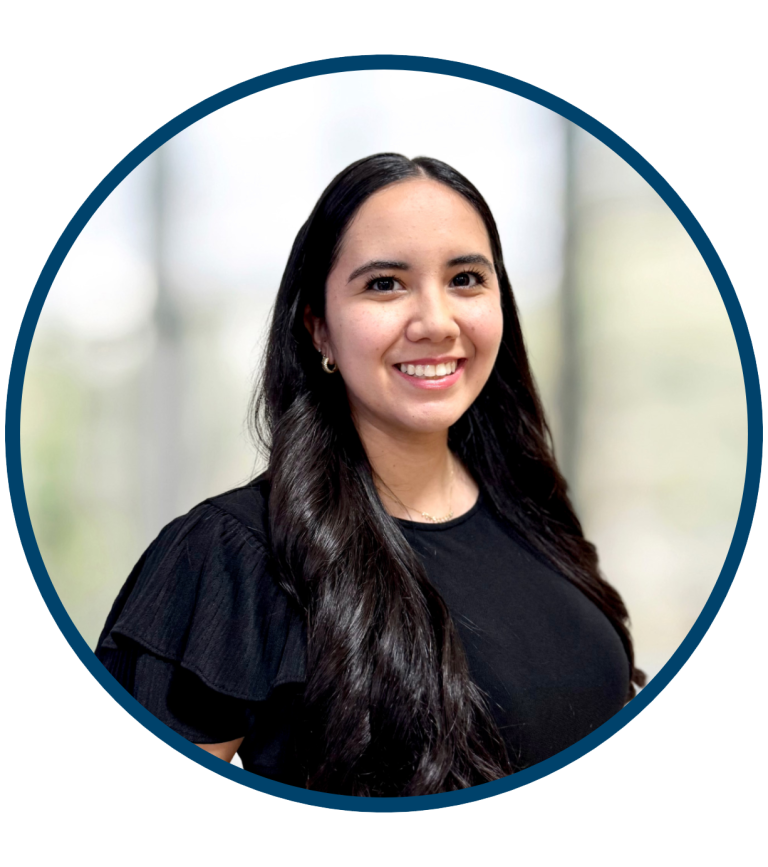Funding Your Future with Confidence
At California Intercontinental University, financial aid is designed to be clear and supportive, so you can focus on your future, not just your tuition. From understanding how aid works to exploring scholarships, grants, and repayment options, you’ll have the guidance you need at every step.
About Financial Aid
Your education is an investment in your future, and our priority is ensuring you have the right financial support to make it possible. CIU offers financial aid and scholarships, complemented by other income resources you may choose. Our goal: give you the information and options you need to make confident financial decisions.
Types of Financial Support Available:
- Grants – Need-based funding that does not require repayment
- Scholarships – Available
- Student Loans – Flexible repayment options to help manage tuition
- Tuition Payment Plans – Structured plans that fit your budget
How To Apply
The Financial Aid Team

Jessica Ontiveros

Andrea Angulo

Valentina Moncayo


Lauren Vannatta

Clara Pereira

Sofia Navejas

Evelyn Retamal

Erica Landa

Riannha Puente

Danna Alviso



Frequently Asked Questions
To apply for federal student aid, such as federal grants, work-study, and loans, you need to complete the Free Application for Federal Student Aid (FAFSA®). Completing and submitting the FAFSA is free and easier than ever, and it gives you access to the largest source of financial aid to pay for college or career school.
In addition, many states and colleges use your FAFSA information to determine your eligibility for state and school aid, and some private financial aid providers may use your FAFSA information to determine whether you qualify for their aid.
If you do not already have an FSA ID, you can create an FSA ID.
If you have an FSA ID but do not remember your username, select Forgot Username.
Note: If you verified your email address or mobile phone number during account creation, you can enter your email address or mobile phone number instead of your username.
If you have an FSA ID but do not remember your password, select Forgot Password.
To be eligible to receive federal student aid, you must:
- Be a citizen or eligible noncitizen of the United States.
- Have a valid Social Security Number. (Students from the Republic of the Marshall Islands, Federated States of Micronesia, and the Republic of Palau are exempt from this requirement.)
- Have a high school diploma or a General Education Development (GED) certificate, or have completed homeschooling. If you don’t, you may still be eligible for federal student aid if you were enrolled in college or career school prior to July 1, 2012. Go to https://studentaid.ed.gov/eligibility/basic-criteria for additional information.
- Be enrolled in an eligible program as a regular student seeking a degree or certificate.
- Maintain satisfactory academic progress.
- Not owe a refund on a federal student grant or be in default on a federal student loan.
Many types of federal student aid, such as the Federal Pell Grant or subsidized loans where the government pays the interest while you are in college, also require you to have financial need. Additionally, once you have a bachelor’s degree or a first professional degree, you are generally not eligible for Pell or Federal Supplemental Educational Opportunity Grants (FSEOG). Other requirements may apply.
Contact the financial aid office for more information.
Our school code is 04244000.
While completing the Free Application for Federal Student Aid (FAFSA®), you must list at least one college to receive your information.
To add colleges after you have already submitted your FAFSA, click the Log In button on the home page and log into FAFSA on the Web. Click Make FAFSA Corrections, and then navigate to the “School Selection” page.
To search for a college that you want to receive your information, select the state in which the college is located, then enter the city and/or school name and click Search. We will search our database and display your results in order by best match. You can re-sort the list in alphabetical order by School Name.
From the Search Results, you can select up to ten colleges to add to your list of Selected Schools. You can select an individual college, or you can press the Ctrl button on your keyboard and select multiple colleges. After you have selected the college(s), click the ADD>> button to add the college(s) to your list of Selected Schools.
What is CIU’s school code? 04244000.
If you can answer “Yes” to any of the following questions, you are considered an independent student on the 2021–22 Free Application for Federal Student Aid (FAFSA®) form, and you generally won’t need to provide your parents’ information:
- Were you born before January 1, 1998?
- As of today, are you married?
- At the beginning of the 2021–22 school year, will you be working on a master’s or doctorate program (such as an M.A., MBA, M.D., J.D., Ph.D., Ed.D., graduate certificate, etc.)?
- Are you currently serving on active duty in the U.S. armed forces for purposes other than training?
- Are you a veteran of the U.S. armed forces?
- Do you now have or will you have children who will receive more than half of their support from you between July 1, 2021, and June 30, 2022 [during the award year]?
- Do you have dependents (other than your children or spouse) who live with you and who receive more than half of their support from you now and through June 30, 2022?
- At any time since you turned age 13, were both your parents deceased, were you in foster care or were you a dependent or ward of the court?
- If you are not sure if you were in foster care, check with your state child welfare agency.
- As determined by a court in your state of legal residence, are you or were you an emancipated minor?
- Does someone other than your parent or stepparent have legal guardianship of you, as determined by a court in your state of legal residence?
- At any time on or after July 1, 2020, did your high school or school district homeless liaison determine that you were an unaccompanied youth who was homeless or were self-supporting and at risk of being homeless?
- At any time on or after July 1, 2020, did the director of an emergency shelter or transitional housing program funded by the U.S. Department of Housing and Urban Development determine that you were an unaccompanied youth who was homeless or were self-supporting and at risk of being homeless?
- At any time on or after July 1, 2020, did the director of a runaway or homeless youth basic center or transitional living program determine that you were an unaccompanied youth who was homeless or were self-supporting and at risk of being homeless?
However, if you can answer “No” to all of the above questions, you’re considered a dependent student and generally your parents must provide parental information on your FAFSA form.
If you have a special circumstance that prevents you from providing parental information, you may still be able to submit your FAFSA form. However, your FAFSA form will be considered incomplete. You must contact the financial office at your college or career school and provide them with documentation to verify your situation. Learn about what to do if your parents are unwilling to provide their information on your FAFSA form.
Note: Law school and health profession students may be required to provide parental information regardless of their dependency status.
If you submitted your Free Application for Federal Student Aid (FAFSA) online using FAFSA on the Web, then the U.S. Department of Education will process your application within 3-5 days. If you submitted a paper FAFSA, your application will be processed within 7-10 days.
Once your application is processed, you will receive a copy of your Student Aid Report (SAR), which summarizes the information you provided on your FAFSA. Review your SAR and make sure all of the information is complete and accurate.
If there is any missing or incorrect information, then you should complete or correct your FAFSA as soon as possible.
Your SAR will include your Expected Family Contribution (EFC). The EFC determines your eligibility for a Federal Pell Grant, and the college uses the EFC to assess your eligibility for other federal and nonfederal student aid.
Once your FAFSA is processed by Federal Student Aid, your SAR is sent to the colleges that you listed on your FAFSA. Each college will use the information on your SAR to determine your eligibility for federal and nonfederal student aid. The colleges you listed are responsible for creating your award package and disbursing your financial aid. However, listing a college on your FAFSA is generally not sufficient to receive aid at that college, as most colleges do not create award packages for every applicant who lists the college on a FAFSA.
You should contact the financial aid office at the college you plan to attend to find out if there are additional requirements for receiving financial aid and to learn more about the process of applying for aid at that college.
Please contact our Financial Aid department or visit the Department of Education.
Please refer to our Applying for Financial Aid page.





